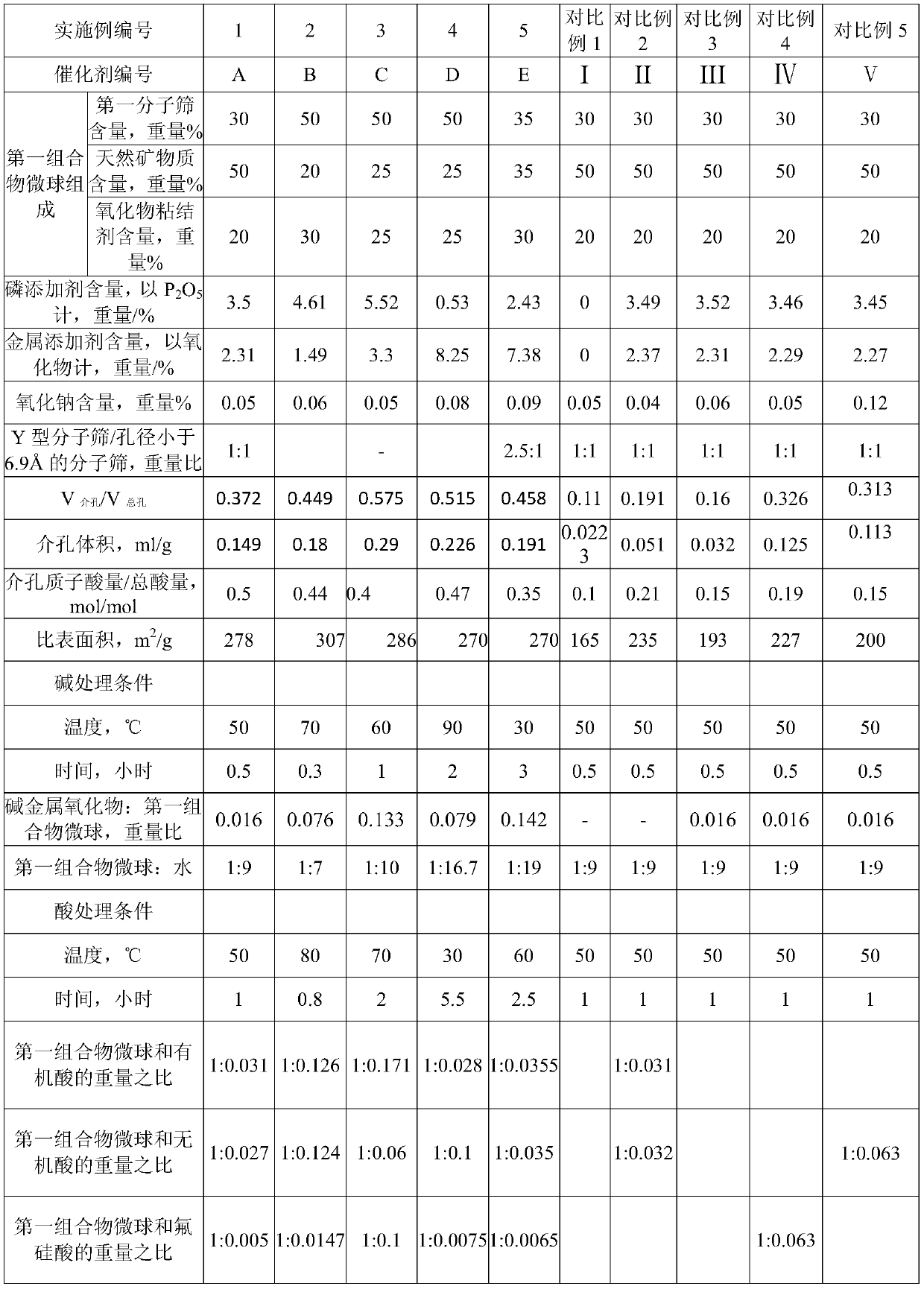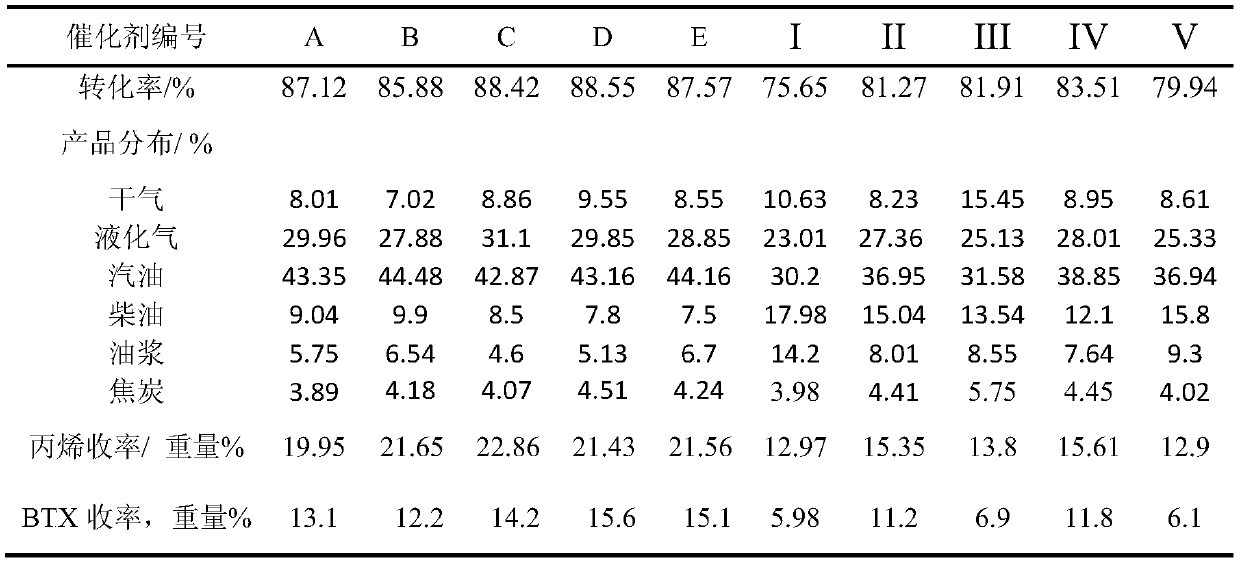Catalytic cracking catalyst and preparation method thereof
A catalytic cracking, catalyst technology, applied in catalytic cracking, physical/chemical process catalysts, molecular sieve catalysts, etc., can solve the problems of low propylene selection yield and BTX yield, etc.
- Summary
- Abstract
- Description
- Claims
- Application Information
AI Technical Summary
Problems solved by technology
Method used
Image
Examples
preparation example Construction
[0053] The preparation method of the catalytic cracking catalyst provided by the present invention includes mixing and beating natural minerals, the first molecular sieve, an oxide binder such as oxide sol and / or oxide gel, and water. Based on the total weight of the catalyst, the amount of each component is such that the final catalyst contains 5% to 65% by weight of natural minerals, 10% to 60% by weight of oxides and 24% to 75% by weight of the second A molecular sieve. More preferably, the amount of each component is such that the composition of the final catalyst includes: the natural mineral content is 5% to 50% by weight on a dry basis, such as 8 to 45% by weight, and the content of the first molecular sieve on a dry basis 30% to 65% by weight, such as 30 to 55% by weight, the content of the oxide binder in terms of oxides is 15 to 55% by weight, such as 20 to 50% by weight or 25 to 45% by weight or 20 to 35% by weight % or 12% to 28% by weight.
[0054] The preparati...
Embodiment 1
[0076] 267g aluminum sol is mixed with 200g kaolin, and it is mixed with decationized water into a slurry with a solid content of 28% by weight. After stirring for 2 hours, add (on a dry basis) 45gUSY and 45gβ molecular sieves to form a composition slurry (with a solid content of 35% by weight), stirred evenly, spray-dried to make composition microspheres, and then calcined the composition microspheres at 500° C. for 2 hours to obtain the first composition microspheres A1.
[0077] Take 200 g of the first composition microspheres A1 (dry basis mass, the same below) prepared above, add water and beat to obtain a slurry with a solid content of 10% by weight, add 15.1 g of high alkali sodium metaaluminate solution (Na 2 O is 290g / L, Al 2 o 3 40g / L, the solution density is 1.353g / mL), heated up to 50°C and stirred at constant temperature for 0.5h, filtered and washed to neutral (washing to neutral means that the washing liquid after washing is neutral, pH6~8); Add water to the f...
Embodiment 2
[0079]353g silica sol is mixed with 80g montmorillonite, and it is prepared into slurry with decationized water, after stirring for 0.5 hour, add 20gβ molecular sieve and 130gZSM-5 molecular sieve, continue stirring evenly, form the first composition slurry (solid content is 35% weight), spray-dried to make composition microspheres, and then calcined the composition microspheres at 350°C for 1-2 hours to obtain the first composition microspheres B1.
[0080] Take 200 g of the first composition microsphere B1 (mass on a dry basis) prepared above, add water to prepare the first composition microsphere slurry with a solid content of 14% by weight, add 20.5g NaOH (purity 96%), heat up to 50°C and stir at a constant temperature 0.3h, filter and wash to neutrality; add water to the filter cake and beat to obtain a slurry with a solid content of 10% by weight, add 25.1g oxalic acid during stirring, then add 247g hydrochloric acid (HCl mass fraction 10%) and 98g fluorosilicic acid solu...
PUM
| Property | Measurement | Unit |
|---|---|---|
| specific surface area | aaaaa | aaaaa |
| specific surface area | aaaaa | aaaaa |
Abstract
Description
Claims
Application Information
 Login to View More
Login to View More - R&D
- Intellectual Property
- Life Sciences
- Materials
- Tech Scout
- Unparalleled Data Quality
- Higher Quality Content
- 60% Fewer Hallucinations
Browse by: Latest US Patents, China's latest patents, Technical Efficacy Thesaurus, Application Domain, Technology Topic, Popular Technical Reports.
© 2025 PatSnap. All rights reserved.Legal|Privacy policy|Modern Slavery Act Transparency Statement|Sitemap|About US| Contact US: help@patsnap.com


